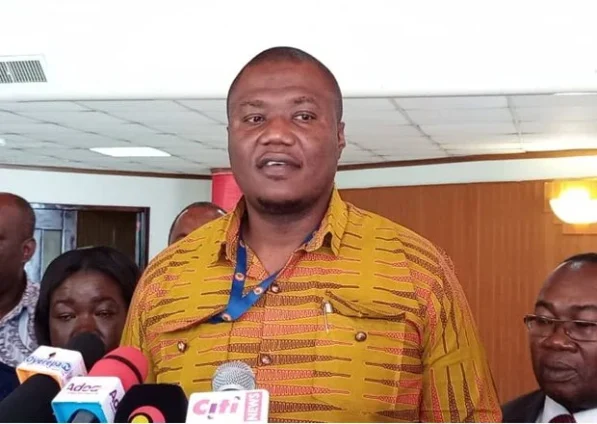Ranking Member on Parliament’s Health Committee, Dr Ayew Afriyie, has urged government to reconsider plans to allocate 20% of the National Health Insurance Authority (NHIA) funds to the newly established Ghana Medical Trust Fund under the MahamaCares initiative. Instead, he is calling for the existing COVID-19 Health Recovery Levy to be redirected to support the Fund.
Speaking to the media at Parliament on the Ghana Medical Trust Fund Bill which was laid on Monday, July 21, 2025, under a certificate of urgency and passed the following day, Dr. Ayew welcomed the vision behind the bill but expressed deep reservations about the proposed financing model.
He stressed that channeling a fifth of the NHIA’s funds into the new Trust could undermine the sustainability of the National Health Insurance Scheme (NHIS), a critical social protection programme for millions of Ghanaians.
According to him, such a move risks creating confusion and duplication in healthcare delivery and funding.
While the bill received unanimous approval, Dr. Ayew’s concerns reignite debate about the sustainability of healthcare financing in Ghana. He argued that government must make careful distinctions between funding sources to ensure that the NHIS is not weakened in the process of implementing new healthcare interventions
“There should be clarity for Ghanaians on where to seek care with the NHIS and where to seek care with the Trust. We object to the NHIA 20% allocation to the Trust. But would the government think about a COVID Levy?”Dr. Ayew stated.
He proposed an alternative path repurposing the COVID Levy instead of scrapping it entirely.
“If the government had promised to repeal the act that establishes the COVID Levy, I think there is nothing wrong with apologising, so that the COVID Levy can be earmarked to support the work of the Trust,” he added.
The Ghana Medical Trust Fund Bill, which has now been passed, aims to provide a dedicated financial pool to support emergency care, critical medical interventions, and healthcare for underprivileged Ghanaians. It seeks to improve access to quality healthcare and provide a supplementary path to treatment for vulnerable populations.
.


